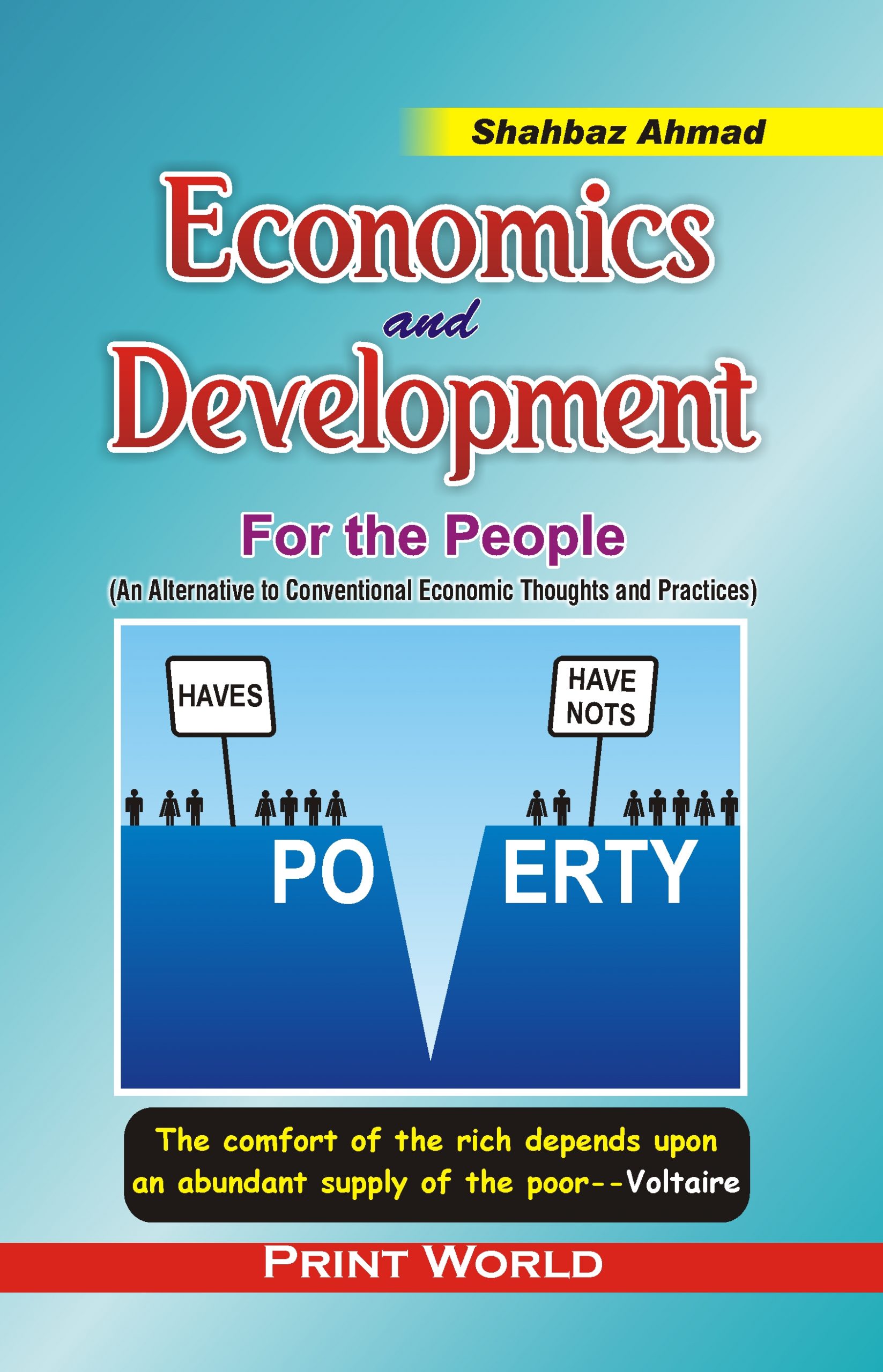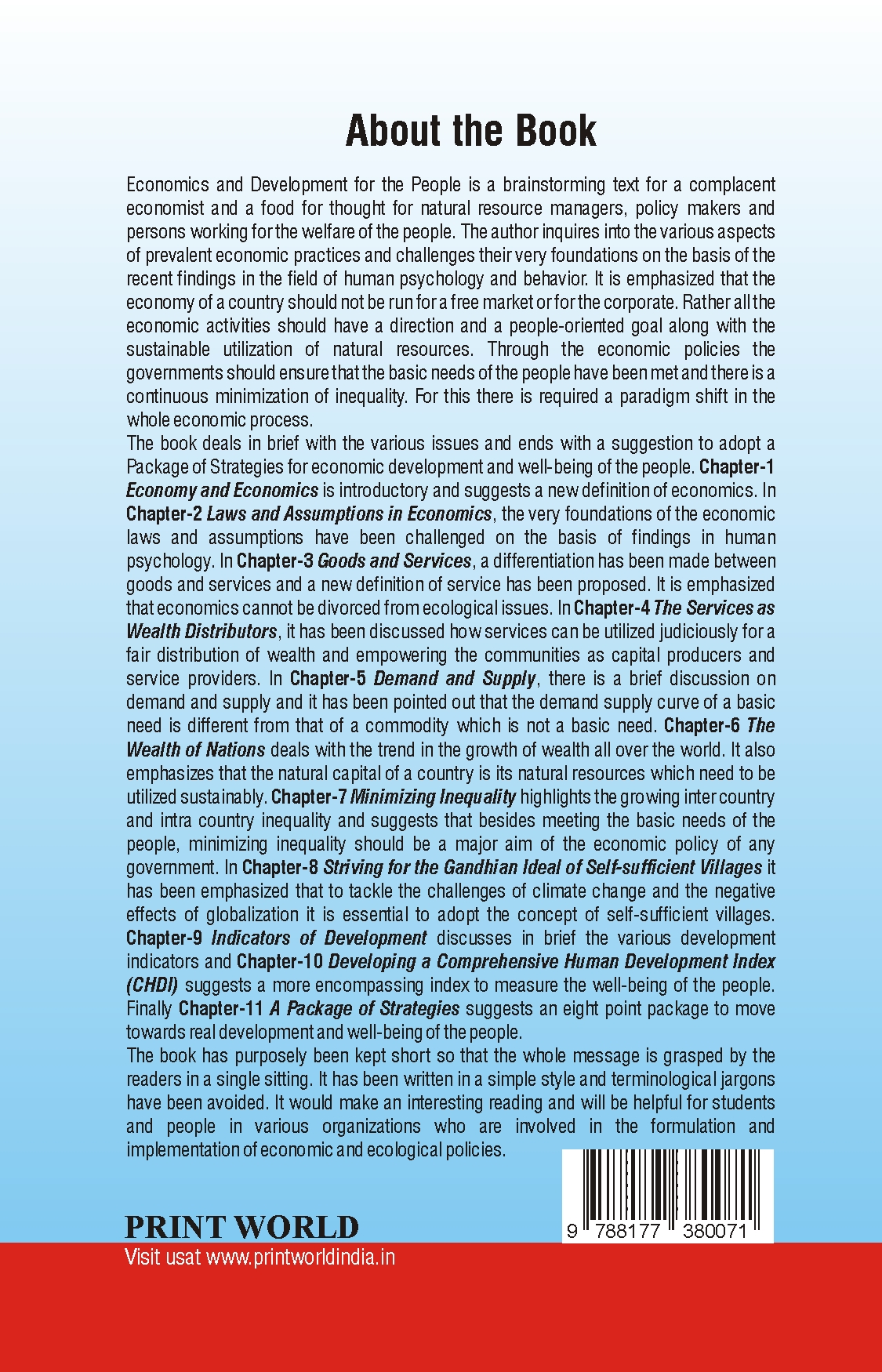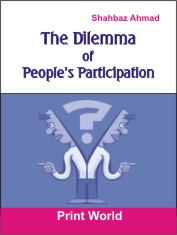Description
3,134 total views, 7 views today
Economics and Development for the People is a brainstorming text for a complacent economist and a food for thought for natural resource managers, policy makers and persons working for the welfare of the people. The author inquires into the various aspects of prevalent economic practices and challenges their very foundations on the basis of the recent findings in the field of human psychology and behavior. It is emphasized that the economy of a country should not be run for a free market or for the corporate. Rather all the economic activities should have a direction and a people-oriented goal along with the sustainable utilization of natural resources. Through the economic policies the governments should ensure that the basic needs of the people have been met and there is a continuous minimization of inequality. For this there is required a paradigm shift in the whole economic process.
The book deals in brief with the various issues and ends with a suggestion to adopt a Package of Strategies for economic development and well-being of the people. Chapter-1 Economy and Economics is introductory and suggests a new definition of economics. In Chapter-2 Laws and Assumptions in Economics, the very foundations of the economic laws and assumptions have been challenged on the basis of findings in human psychology. In Chapter-3 Goods and Services, a differentiation has been made between goods and services and a new definition of service has been proposed.It is emphasized that economics cannot be divorced from ecological issues. In Chapter-4 The Services as Wealth Distributors, it has been discussed how services can be utilized judiciously for a fair distribution of wealth and empowering the communities as capital producers and service providers. In Chapter-5 Demand and Supply, there is a brief discussion on demand and supply and it has been pointed out that the demand supply curve of a basic need is different from that of a commodity which is not a basic need. Chapter-6 The Wealth of Nations deals with the trend in the growth of wealth all over the world. It also emphasizes that the natural capital of a country is its natural resources which need to be utilized sustainably. Chapter-7 Minimizing Inequality highlights the growing inter country and intra country inequality and suggests that besides meeting the basic needs of the people, minimizing inequality should be a major aim of the economic policy of any government. In Chapter-8 Striving for the Gandhian Ideal of Self-sufficient Villages it has been emphasized that to tackle the challenges of climate change and the negative effects of globalization it is essential to adopt the concept of self-sufficient villages. Chapter-9 Indicators of Development discusses in brief the various development indicators and Chapter-10 Developing a Comprehensive Human Development Index (CHDI) suggests a more encompassing index to measure the well-being of the people. Finally Chapter-11A Package of Strategies suggests an eight point package to move towards real development and well-being of the people.
The book has purposely been kept short so that the whole message is grasped by the readers in a single sitting. It has been written in a simple style and terminological jargon have been avoided. It would make an interesting reading and will be helpful for students and people in various organizations who are involved in the formulation and implementation of economic and ecological policies.







Reviews
There are no reviews yet.